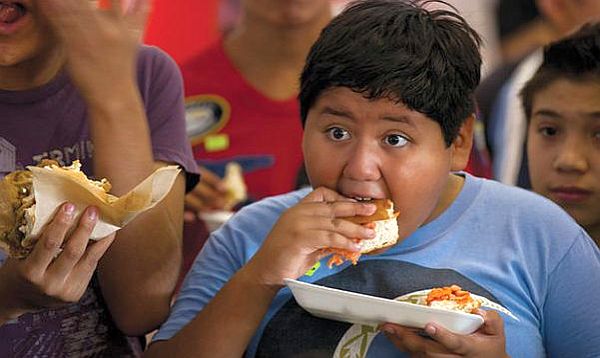Mexico City, Mexico - In 2006, following the publication of the National Health and Nutrition Survey, newspaper headlines were damning: "Mexico: Nation of the Obese" or "Mexico: World's Fattest Country."
The bad press zeroed in on children and adolescents. In 2012, close to 35 percent of those between 5 and 19 were classified overweight or obese, which not only presented a public health problem, but a public funding crisis as well. Estimates indicate that obesity costs the Mexican government more than 5 billion dollars each year, and forecasts indicate that by 2017 this amount will more than double.
Mitigating Childhood Obesity Through Regulation and Self-Regulation
Newspaper headlines on child obesity might be more positive in the near future thanks to recent public policy decisions made by the Mexican government, such as the approval of an eight percent tax on flavored drinks with added sugar as well as high calorie foods.
Another reason for optimism is the 2013 education reform, which established the obligation to provide nutritional meals to students, prohibit the sale and consumption of unhealthy foods in schools, and encourage nutrition education and physical activity.
Additionally, the government recently launched the "National Strategy for the Prevention and Control of Overweight, Obesity, and Diabetes," which is underpinned by public health, medical attention, fiscal policy, and health regulations, particularly in relation to information on the nutritional content of foods on labels and advertising.
Addressing the Correlation Between Marketing and Advertising on Children's Health and Nutrition
This last aspect is vitally important. The existing self-regulating codes for food and drink advertising, which currently have 34 member companies including large multinationals, is supervised by an advertising ethics council run by the private sector, opening the door to conflicts of interest. The code is already considered rather lenient.
The strategy's goal is to limit unrestricted advertising that invites consumption of non-nutritional foods and drinks during children's television programming times, but so far, the necessary legal reforms have not been undertaken, nor are the respective oversight mechanisms and sanctions in place. These are urgently needed to protect children during a stage in their lives where they are particularly vulnerable to such influences.
UNICEF Mexico works with government, business, academics, lawmakers, and social actors to put children at the heart of a comprehensive strategy that addresses obesity as a multi-factor phenomenon. We recognize that preventing obesity in children is an effective way of avoiding harmful effects to their immediate health, which could lead to disability and premature death in adulthood.
Relatedly, UNICEF actively promotes breastfeeding – for its benefits to both mother and child, but also as a means of tackling child and adult obesity. We also focus on social and nutrition programmes for children who show signs of chronic malnutrition which can lead to obesity later on, as well as timely, efficient, and effective public investment to make the right to adequate nutrition a reality for all. Measures such as these will go a long way in creating favourable headlines and a more positive outlook for Mexican children, and will help address the impacts of marketing and advertising to children.
Original Story


